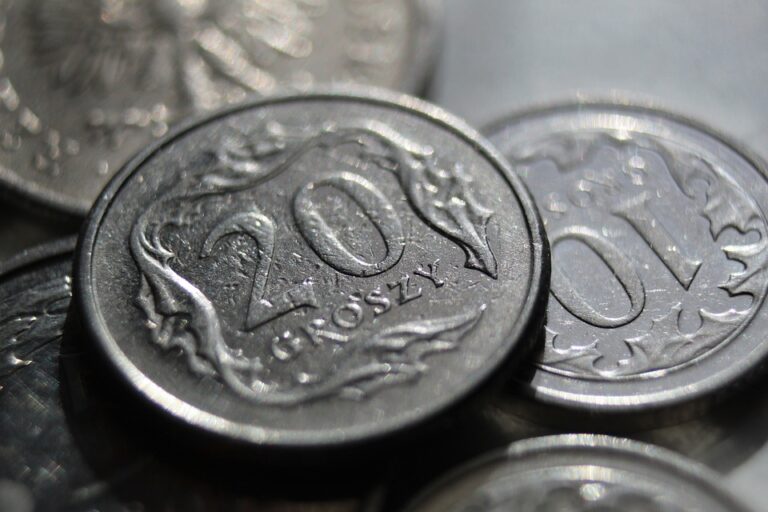Last updated Feb. 1, 2025 by Charles Zemub
In a world where every penny counts, finding ways to save money daily can be a game-changer. Whether you’re looking to cut back on expenses, pay off debt, or increase your savings, incorporating simple daily habits can make a significant impact. Here are 23 practical ways to save money every day:
-
Plan Your Meals
Planning meals ahead can help avoid last-minute takeout and reduce impulse grocery purchases. Create a weekly menu and shop with a list to stick to your budget.
-
Brew Your Coffee at Home
Instead of splurging on that daily latte, invest in a quality coffee maker and make your coffee at home. This small change can save hundreds of dollars a year.
-
Use Public Transportation
If available, opt for public transportation instead of driving. You’ll save on gas, parking, and wear and tear on your vehicle.
-
Cancel Subscriptions You Don’t Use
Go through your bank statements and review any subscriptions. Cancel the ones you don’t use regularly.
-
Cut Your Cable
With so many streaming services available at a fraction of the cost, consider cutting the cord on traditional cable packages.
-
Buy Generic Brands
Many times, generic or store-brand products are just as good as name-brand items but at a lower price.
-
Limit Dining Out
Cooking at home is not only healthier but also more economical. Reserve dining out for special occasions.
-
Create a Budget
Knowing where your money goes is crucial. Use budgeting apps or a simple spreadsheet to track expenses and identify areas where you can cut back.
-
Use Coupons and Discounts
Before making a purchase, check for available coupons and discounts. Apps and browser extensions can also help find savings.
-
Set Savings Goals
Setting specific goals can motivate you to save. Whether it’s for a vacation, a new car, or an emergency fund, having a target makes saving more purposeful.
-
Turn Off Lights and Appliances
Save on your electricity bill by turning off lights and appliances when not in use. Consider energy-efficient bulbs and appliances for further savings.
-
Entertain at Home
Instead of going out, invite friends over for a potluck dinner, game night, or movie marathon.
-
Pack Your Lunch
Bringing lunch from home is usually healthier and cheaper than eating out every day.
-
Avoid Impulse Buying
Give yourself a 24-hour waiting period before making an impulsive purchase. This can reduce buyer’s remorse and unnecessary spending.
-
Negotiate Bills
Contact service providers to negotiate lower rates on your phone, internet, and insurance bills.
-
Use Cashback Apps
Leverage cashback apps for everyday purchases. The savings might seem small but can accumulate over time.
-
Buy in Bulk
For items you use frequently, buying in bulk can save money. Just ensure that you’ll use the items before they expire.
-
Utilize the Library
Instead of buying books or DVDs, borrow them from your local library. This can significantly cut entertainment expenses.
-
Do It Yourself
Before spending on services, consider if it’s something you can do yourself. From home repairs to grooming, DIY can be rewarding and cheaper.
-
Shop Off-Season
Purchase seasonal items like clothes or decorations during off-peak times to score discounts.
-
Save Spare Change
Keep a jar for spare change. It adds up over time, and you can deposit it into your savings account regularly.
-
Unsubscribe from Marketing Emails
Reduce temptation by unsubscribing from marketing emails that consistently lead you to unnecessary purchases.
- Stay Healthy
Invest in your health through a balanced diet and regular exercise. Staying healthy can help avoid costly medical bills.
✓ Short Answer
Saving money every day is within your reach by making simple changes and adopting practical habits. From brewing your coffee at home to using public transportation, these small adjustments can lead to significant financial savings. Create a budget to monitor expenses, cut back on unnecessary subscriptions, and make smarter purchasing decisions. By using coupons, negotiating bills, and buying in bulk, everyday savings can add up and strengthen your financial health. Prioritize what truly matters and make informed choices to pave the way for a secure financial future.
Q: How can I effectively manage my budget?
A: Use tools like budgeting apps or spreadsheets to track income and expenses. Review regularly to identify areas to cut back and allocate funds toward savings and debts.
Q: Is it possible to save money on a tight budget?
A: Yes, it is possible. Start with small changes, such as cutting out unnecessary expenses, using public transportation, and cooking at home. Leverage community resources like libraries and thrift stores.
Q: How much should I aim to save each month?
A: Financial experts often recommend saving at least 20% of your income. However, any amount you can save is beneficial. Set realistic goals based on your financial situation.
Q: What’s the biggest mistake people make when trying to save money?
A: One common mistake is not tracking expenses, which can lead to overspending. Another is cutting too much too quickly, leading to unsustainable habits.
Q: Can using coupons really save me that much money?
A: Yes, using coupons can lead to substantial savings, especially when combined with sales and cashback deals. The key is to use them for items you regularly purchase.
Q: Is it worthwhile to buy generic brands?
A: Often, yes. Generic brands can provide similar quality to name brands at a lower price, leading to significant savings over time.
By integrating these strategies and answering common questions, you can create a robust plan for daily savings that enhances your financial well-being.





